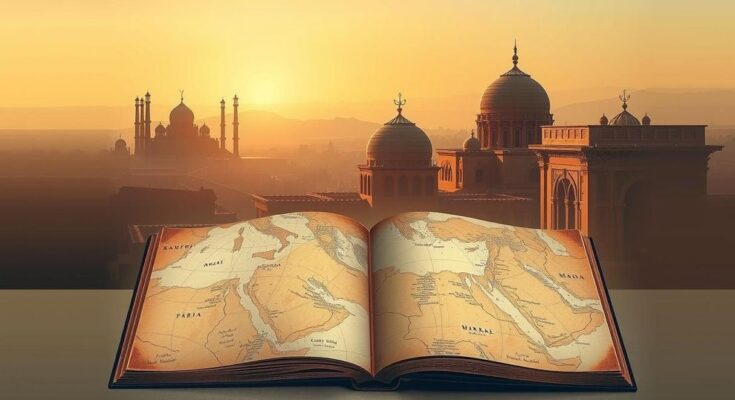Jonathan Wyrtzen’s “Worldmaking in the Long Great War” highlights the overlooked significance of the Middle East in World War I. Covering local struggles from 1911 to 1934, the book showcases how indigenous movements influenced colonial dynamics and shaped the region’s future. Wyrtzen’s work urges readers to reconsider common assumptions about the Middle East being passive and emphasizes the critical role of local actors in historical events.
In “Worldmaking in the Long Great War: How Local and Colonial Struggles Shaped the Modern Middle East,” Jonathan Wyrtzen revitalizes the role of the Middle East during World War I, a region previously neglected in historical narratives. His work spans from 1911 to 1934 and encompasses vast geographic dynamics, highlighting how local struggles and colonial ambitions shaped the region, countering the traditional portrayal of the area as merely passive in the face of European colonialism.
Wyrtzen presents examples such as the Rif Wars and various revolts that illustrate how indigenous successes contested colonial forces. Notably, he discusses the Senussi victory over Italians and the Arab resistances in Morocco and Syria, emphasizing their influence in the broader context of anti-colonial struggles. This perspective challenges common misconceptions, such as the myth that Dien Bien Phu marked the first indigenous victory against entrenched Western troops.
The book also underscores the importance of religious movements during this era, discussing how these played crucial roles in anti-colonial efforts. Wyrtzen highlights significant events, including the Sheikh Said Rebellion, which concerned Winston Churchill, and the mixed Sufi and Sunni efforts led by the Senussi in Libya. Furthermore, it points to Mussolini’s diplomatic ambitions in the Middle East.
While the narrative is compelling, Wyrtzen could have further broadened the scope to include regions such as Somalia and Afghanistan, which also witnessed significant post-World War I uprisings. Historical figures, like Muḥammad ibn ‘Abdallāh Hassan, profoundly impacted resistance movements that extended into contemporary struggles.
The text situates the Middle East centrally in World War I historiography, unlike traditional narratives emphasizing European contexts. It references Sean McMeekin’s work, demonstrating that imperial ambitions played a vital role in igniting the global conflict and reshaping the region’s political reality.
Wyrtzen effectively navigates through historical documents, revealing pivotal moments where local actors could have rewritten history. His argument presses against long-standing assumptions regarding the shaping of modern borders and political struggles in the region, cementing this work as an essential read for scholars interested in these critical themes.
The Middle East’s significance during World War I has often been overlooked, with mainstream historical accounts focusing on European perspectives. Recent scholarship aims to rectify this, spotlighting the pivotal events and local struggles that influenced the modern Middle East. By examining conflicts such as the Rif Wars and Kurdish uprisings, new literature seeks to provide a nuanced understanding of the era and its implications for contemporary geopolitics. Jonathan Wyrtzen’s book contributes significantly to this discourse, positioning local actors at the forefront of historical developments rather than mere subjects of colonial narratives.
Jonathan Wyrtzen’s “Worldmaking in the Long Great War” offers a fresh perspective on the Middle East during World War I, emphasizing the region’s active role in shaping its destiny. By shedding light on local struggles and anti-colonial movements, Wyrtzen challenges established historical narratives and underscores the region’s importance in global history. This text is a critical addition for those seeking to understand the complex dynamics that have shaped modern Middle Eastern politics and identity.
Original Source: manaramagazine.org




